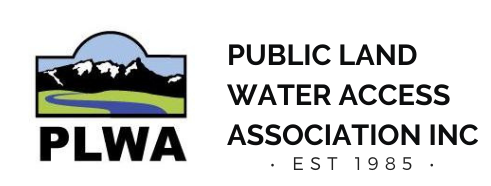PLWA POSITION
ON MOTORIZED USE AND PUBLIC ACCESS
Although we have in interest in reasonable access for all recreational users, we have significant concern about any use which can become a semi-exclusive or “consumptive” use – that is any use which significantly diminishes the enjoyment by other users. Motorized use can easily become “consumptive” and damaging to the resource use if not regulated and policed. Given the size of Montana public lands it can be very difficult to police. It is often a major objection and obstacle to opening public land access.
On the other hand, without some motorized use, large areas of the Montana landscape become inaccessible except to the young and hearty, or those with the budget and inclination to own or engage pack stock. Also public agencies cannot perform their management functions without motorized access in many cases. How do you fight fire if you cant get in there ?
In general then, PLWA approaches motorized use on a case by case basis, generally favoring limitation of motorized use on smaller areas of public land and supporting it on a regulated and limited basis for larger areas.
A general policy was stated coherently by Greg Jahn in a letter to the Billings Gazette on August 6, 2010. It applies to all users of public land:
“The ‘commons’ is a form of collective wealth that belongs to all of us. It is a community resource inherited jointly to be actively protected and managed for the good of all, hopefully lasting for many generations. Principles for the commons propose that inclusion is more important than exclusion and interdependence trumps extreme individualism. Our collective well-being is enhanced when the commons is used to maximize opportunities for everyone and degraded when the commons is used to maximize opportunities for a minority.”
